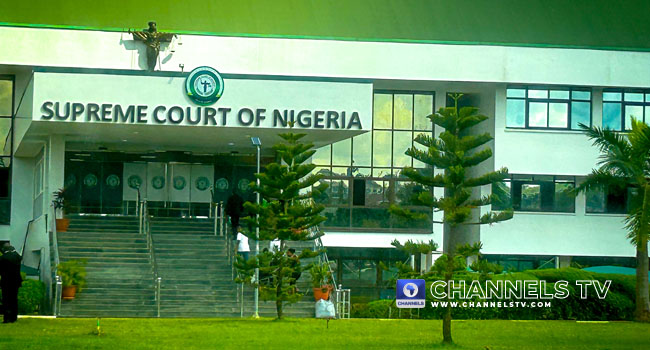The Supreme Court of Nigeria, in a landmark ruling delivered on Friday, November 15, 2024, has dismissed a suit challenging the constitutionality of the Economic and Financial Crimes Commission (EFCC), Independent Corrupt Practices and Other Related Offences Commission (ICPC), and the Nigerian Financial Intelligence Unit (NFIU). The case, filed by attorneys general of 16 states, sought the scrapping of the anti-graft agencies, claiming they were unlawfully established.
Justice Uwani Abba-Aji, delivering the lead judgment on behalf of a seven-member panel, declared the suit lacking in merit. She ruled that the EFCC Act, being a convention rather than a treaty, does not require ratification by state houses of assembly as claimed by the plaintiffs.
The plaintiffs, including states like Ondo, Edo, and Enugu, argued that the EFCC Act violated Section 12 of the 1999 Constitution, which mandates state-level approval for international conventions to be domesticated as laws. Despite their assertions, the court maintained that the EFCC and its sister agencies were constitutionally valid entities.
At an earlier hearing on October 22, 2024, Imo, Bauchi, and Osun states joined the suit as co-plaintiffs, while Anambra, Ebonyi, and Adamawa withdrew their cases. The withdrawals were officially struck out by the court.
Justice Abba-Aji emphasized that the case was filed against the Attorney-General of the Federation rather than the anti-corruption bodies themselves, affirming the Supreme Court’s jurisdiction in the matter.
Critics of the anti-graft agencies have long questioned their legality. Senior Advocate of Nigeria (SAN) Olisa Agbakoba, in a letter to the National Assembly, described the EFCC as “unconstitutionally established,” citing overreach of the National Assembly’s legislative powers. However, legal and public support for the EFCC remains robust.
Human rights lawyer Femi Falana (SAN) has consistently advocated for the autonomy of anti-graft institutions. Speaking on October 20, he stated, “The EFCC and ICPC have become indispensable in the fight against corruption. Rather than challenge their existence, we should demand measures to make these agencies independent of government control.”
EFCC’s Director of Public Affairs, Wilson Uwujaren, expressed satisfaction with the ruling, describing it as a victory for Nigeria’s anti-corruption efforts. “Without the EFCC, this country will collapse under the weight of corruption. Nigerians should resist these distractions and support the fight against graft,” he said during a Channels Television interview on October 21.
The Supreme Court’s decision has been widely hailed as a reaffirmation of Nigeria’s commitment to battling financial crimes. Observers believe it sets a significant precedent in the country’s anti-corruption campaign.




2 Comments